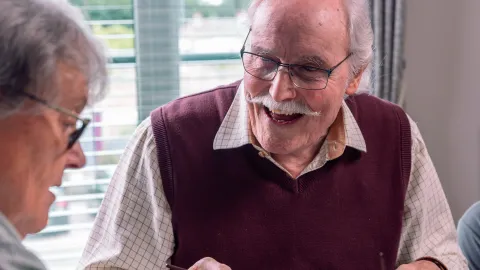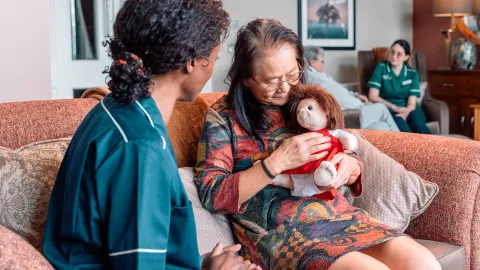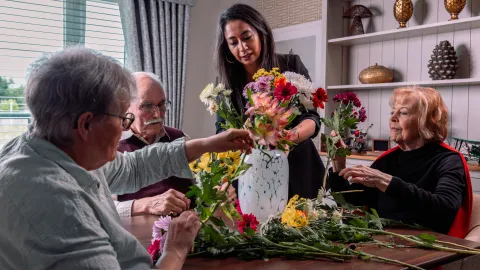Why is inter-generational companionship important for the elderly?
The power of elderly friendships
As we mark the International Day of Friendship on July 30th, it’s a wonderful opportunity to look at companionship for the elderly. Making friends in later life can take many different forms, including those across the generations.
Elderly friendship is vital for staving off loneliness and isolation, but its importance goes further than that. Numerous studies have found that strong social ties lead to longer lives, with some even suggesting a lack of friends is more dangerous than smoking or being obese.
Benefits of senior friendships
Companionship for the elderly has wide-reaching benefits, including:
- Social interaction boosts cognitive health
- Friendships offer a sense of purpose and belonging
- Free from obligation, friends perform a different role to family
- Healthy acquaintances can encourage good lifestyle choices
- Spending time with friends reduces stress
- Social contact reduces feelings of loneliness and isolation
- Levels of obesity, high blood pressure and heart disease are lower in those with strong social networks
Intergenerational friendships
While lifelong friendships are important and should be maintained, creating new connections as people age is also beneficial. Interacting with the younger generation represents a unique chance for companionship for the elderly in a different form.
Learn new skills
Each generation has its own knowledge, experience and viewpoints, making friendships across the age divide a worthwhile opportunity to nurture understanding. While younger people may be able to explain modern technologies, the elderly can share valuable life skills with the next generation.
Build a sense of community
Interacting with people of different ages helps all participants to feel part of a wider community. In a care home setting, this can mean inviting groups in to enjoy certain activities together and reduce the sense of isolation some residents can feel.
Enthusiasm and vitality
Enjoyment shouldn’t be overlooked as a key benefit of elderly friendship, as the fun that’s experienced in the moment is beneficial in itself. Young people’s natural vitality and propensity to laugh makes them great companions to those in later life, lifting their spirits and helping to distract from any pain or worries they may be having.
Social experiment
Channel 4’s popular series Old People’s Home for 4-Year-Olds was an effective demonstration of the mutual enjoyment that can be had from intergenerational friendships. Putting ten preschool-age children in with ten care home residents didn’t just make for compelling viewing, but also a compelling argument.
The effects felt by the characters were profound. Lina, who had been suffering from depression, was visibly cheered by helping the youngsters with a game; and widowed David was coaxed out of the room he’d retired to after his wife’s death. The children, in return, were seen to be joyous and growing in confidence in the company of the elderly residents.


